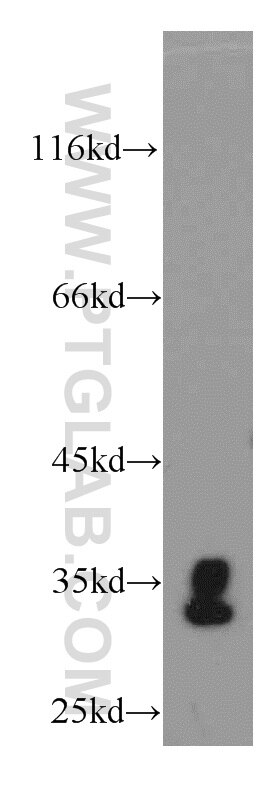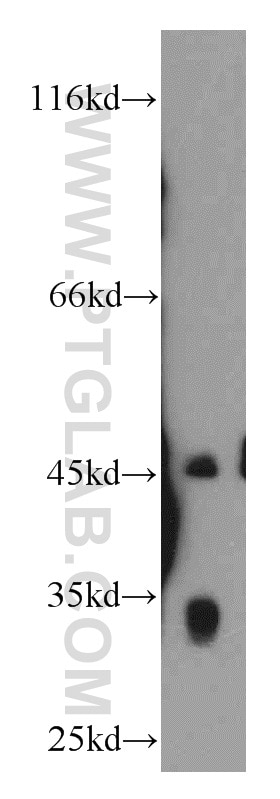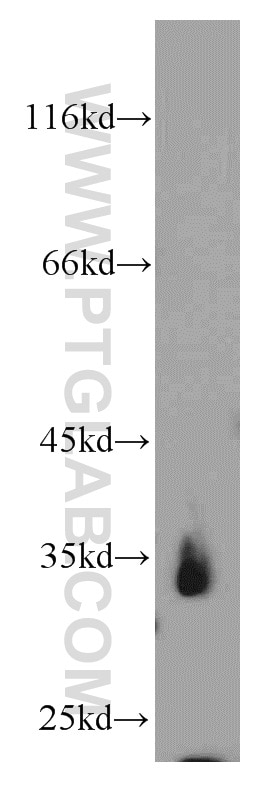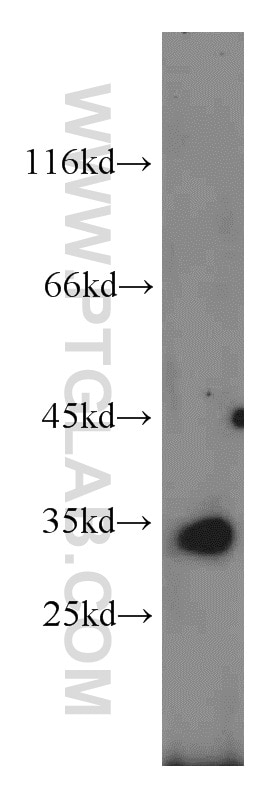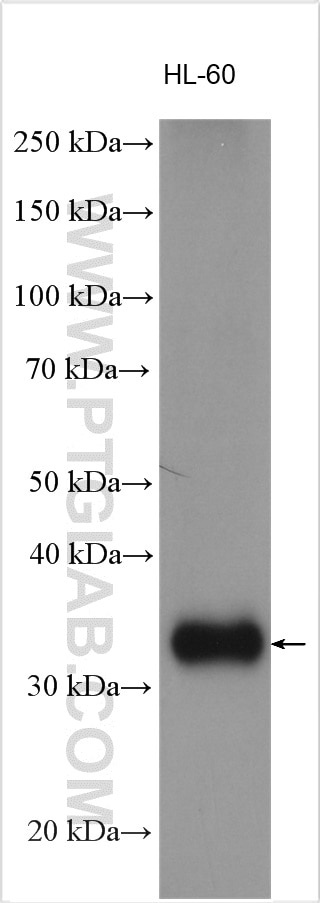CENPO Polyclonal antibody
CENPO Polyclonal Antibody for WB, ELISA
Host / Isotype
Rabbit / IgG
Reactivity
human, mouse, rat
Applications
WB, ELISA
Conjugate
Unconjugated
Cat no : 20611-1-AP
Synonyms
Validation Data Gallery
Tested Applications
| Positive WB detected in | mouse brain tissue, HEK-293 cells, HL-60 cells, mouse kidney tissue, mouse ovary tissue |
Recommended dilution
| Application | Dilution |
|---|---|
| Western Blot (WB) | WB : 1:500-1:2000 |
| It is recommended that this reagent should be titrated in each testing system to obtain optimal results. | |
| Sample-dependent, Check data in validation data gallery. | |
Product Information
20611-1-AP targets CENPO in WB, ELISA applications and shows reactivity with human, mouse, rat samples.
| Tested Reactivity | human, mouse, rat |
| Host / Isotype | Rabbit / IgG |
| Class | Polyclonal |
| Type | Antibody |
| Immunogen | CENPO fusion protein Ag14619 |
| Full Name | centromere protein O |
| Calculated Molecular Weight | 300 aa, 34 kDa |
| Observed Molecular Weight | 34 kDa |
| GenBank Accession Number | BC002870 |
| Gene Symbol | CENPO |
| Gene ID (NCBI) | 79172 |
| RRID | AB_10696179 |
| Conjugate | Unconjugated |
| Form | Liquid |
| Purification Method | Antigen affinity purification |
| Storage Buffer | PBS with 0.02% sodium azide and 50% glycerol pH 7.3. |
| Storage Conditions | Store at -20°C. Stable for one year after shipment. Aliquoting is unnecessary for -20oC storage. 20ul sizes contain 0.1% BSA. |
Background Information
CENPO is a component of the CENPA-CAD (nucleosome distal) complex, a complex recruited to centromeres which is involved in assembly of kinetochore proteins, mitotic progression and chromosome segregation. CENPO may be involved in incorporation of newly synthesized CENPA into centromeres via its interaction with the CENPA-NAC complex. Besides, CENPA modulates the kinetochore-bound levels of NDC80 complex. CENPO has 2 isoforms with MW of 33 and 34 kDa, while different lysates may bind to one or two isforms in SDS-PAGE.
Protocols
| Product Specific Protocols | |
|---|---|
| WB protocol for CENPO antibody 20611-1-AP | Download protocol |
| Standard Protocols | |
|---|---|
| Click here to view our Standard Protocols |
